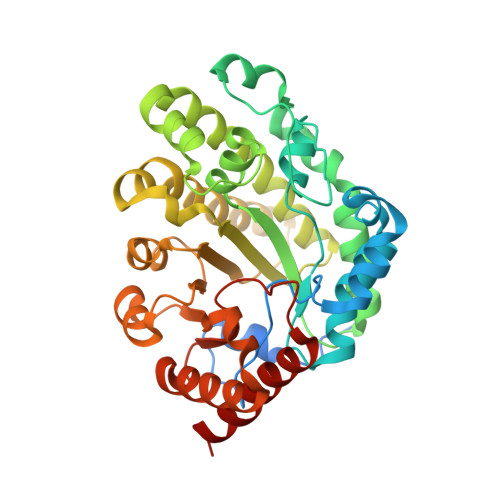Functional consequences of naturally occurring mutations in human uroporphyrinogen decarboxylase.
Phillips, J.D., Parker, T.L., Schubert, H.L., Whitby, F.G., Hill, C.P., Kushner, J.P.(2001) Blood 98: 3179-3185
- PubMed: 11719352
- DOI: https://doi.org/10.1182/blood.v98.12.3179
- Primary Citation of Related Structures:
1JPH, 1JPI, 1JPK - PubMed Abstract:
Functional consequences of 12 mutations-10 missense, 1 splicing defect, and 1 frameshift mutation-were characterized in the uroporphyrinogen decarboxylase (URO-D) gene found in Utah pedigrees with familial porphyria cutanea tarda (F-PCT). All but one mutation altered a restriction site in the URO-D gene, permitting identification of affected relatives using a combination of polymerase chain reaction and restriction enzyme digestion. In a bacterial expression system, 3 of the missense mutants were found in inclusion bodies, but 7 were expressed as soluble proteins. Enzymatic activity of soluble, recombinant mutant URO-D genes ranged from 29% to 94% of normal. URO-D mRNA levels in Epstein-Barr-virus transformed cells derived from patients were normal (with the exception of the frameshift mutation) even though protein levels were lower than normal, suggesting that missense mutations generally cause unstable URO-Ds in vivo. The crystal structures of 3 mutant URO-Ds were solved, and the structural consequences of the mutations were defined. All missense mutations reported here and by others were mapped to the crystal structure of URO-D, and structural effects were predicted. These studies define structural and functional consequences of URO-D mutations occurring in patients with F-PCT.
- Department of Medicine, University of Utah School of Medicine, Salt Lake City 84132, USA.
Organizational Affiliation:
















